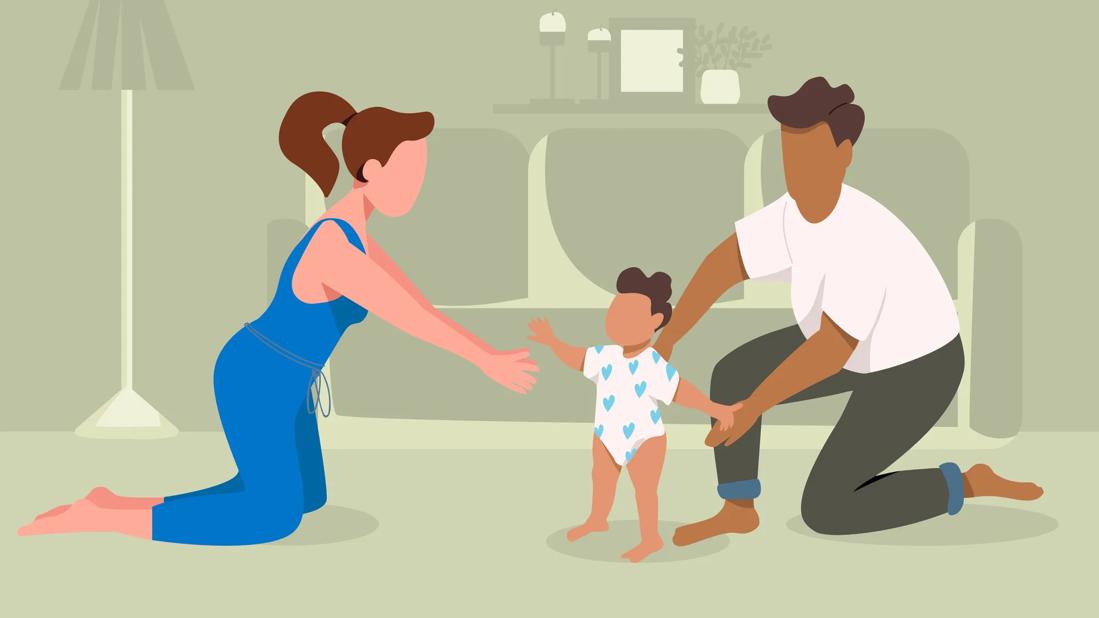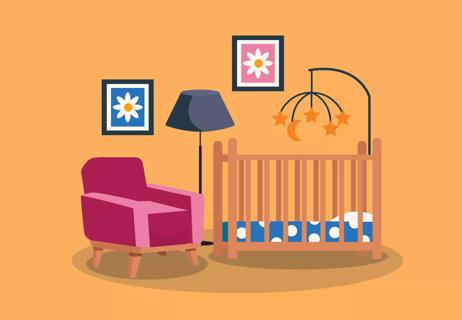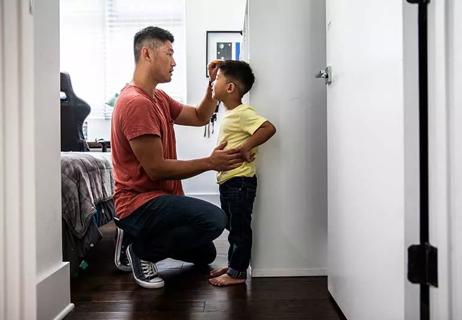Your little one may be up and walking as early as 9 to 12 months

According to the children’s classic film “Santa Claus is Comin’ to Town,” you gotta Put one foot in front of the other, and soon you'll be walking ‘cross the floor. When it comes to your baby, learning how to walk is perhaps the first major milestone in a long list of accomplishments. But how soon will they be walking? And how do they even learn to stand on their own two feet anyway?
Advertisement
Cleveland Clinic is a non-profit academic medical center. Advertising on our site helps support our mission. We do not endorse non-Cleveland Clinic products or services. Policy
Pediatrician Michele Marshall, MD, shares the signs your baby will be walking soon, along with ways to encourage their development as they struggle to stand on their own.
The average age for babies to start walking is about 12 months. But some take their first steps even earlier or much later — and that’s perfectly OK.
“Babies can start walking as early as 9 months,” Dr. Marshall shares. “It’s also normal for babies to take more time and start walking at 17 or 18 months.”
And once they get to hobbling along on two feet, they may not master the new skill of walking right away.
“Expect a wide-based gait for a while,” she adds. “It takes a bit of time to get their balance. Your child might not be up and running until around 15 to 18 months old.”
At around 9 to 12 months, watch for these signs your baby will walk soon:
“What’s most important is the ability to independently pull themselves up to a complete stand,” says Dr. Marshall. “That’s the big milestone that occurs just before babies start independently walking.”
Advertisement
Babies aren’t born light on their feet. It takes time for a baby to take their first steps and learn how to use their arms and legs to boost their mobility. Each and every skill they learn is based on a previous lesson they’ve mastered. In the end, a combined effort of skills that require their arms, legs and core muscles is what makes walking possible.
In general, babies learn to walk in the following stages:
Not every stage is needed to master walking and not all babies learn to walk in the same way. Some babies may be delayed in learning how to walk, especially if their parents were late walkers. Others may even skip crawling altogether, while some might crawl on their hands and knees or commando crawl (pull themselves along on their stomach).
As your child grows, they’ll often mimic what others say and do as they learn to develop their own personalities. When it comes to walking, babies sometimes need an extra hand, too, to guide them or encourage them to develop the skills necessary to stand on their own two feet.
Here are a few ways Dr. Marshall recommends encouraging your baby to walk.
Once your baby can pull to a stand, hold their hands to help them take steps. You can also help them much earlier, too. During the first couple months of life, when you hold them upright on your lap, while supporting their head and neck, you’ll notice a small kicking reflex — a sign their basic instincts are kicking in. From 3 to 4 months, you can hold them upright on a firm surface so that they can push through their legs and start to build those leg muscles.
“Push toys can be helpful. They’ve got four points on the floor, so they’re very steady, and your child can use them for support as they pull up and move along,” notes Dr. Marshall. Common household items can do the trick, too. Flip over a laundry basket, which is typically babies’ height and will steadily scooch along with them as they stand or push it.
Baby walkers are devices with wheels that you sit your child in to propel themselves around. They may be handy for giving you some time to get chores done around the house, but they’re also known to cause thousands of head and neck injuries every year. “They can be dangerous around open doors and stairs and can also get stuck in places,” Dr. Marshall warns.
Advertisement
Furthermore, you shouldn’t leave your child unattended as they practice their new skill.
“If you need to step away for a minute, put your baby in a play area that they can’t escape from or in their crib or portable playpen,” she stresses. “Babies always find something to get into, so the best thing to do is get down on all fours and look around to see any dangers you need to block off.”
While tiny shoes can melt even the hardest of hearts, they’re not necessary for a child to learn to walk properly.
“We need shoes when we’re protecting our feet or going outside,” Dr. Marshall clarifies, “but within the home, bare feet or socks with rubber grips on the bottom are just fine.”
In fact, being barefoot may help your child feel the floor better, which could actually help them move along.
Every child grows and develops at their own pace, but what’s healthy for one child may not be the same for another. Talk to your pediatrician if your child achieves all the milestones leading up to walking but isn’t walking independently by 18 months. If there’s any concern about developmental delays, your doctor will be the first to let you know what may be going on in that tiny body of theirs.
“If they’re achieving all of their milestones, be patient because they may just need more time,” Dr. Marshall says. “But if you have any concerns about when your baby should be walking or meeting other physical milestones, we’re here to help.”
Advertisement
Learn more about our editorial process.
Advertisement

This child development strategy is all about meeting your child where they are

Tiny taste-testing is a way babies can explore their world, relieve aching gums and self-soothe

Start with a few minutes a day and work your way up to an hour or more to help your baby hit developmental milestones

This important activity helps babies reach developmental milestones like rolling, sitting up and crawling

Being the oldest, youngest or middle child may affect characteristics and traits, but the theory isn’t an official medical or psychological diagnosis

Being the oldest female sibling in your family can have an impact on your personality and behavior

There’s no magical age or height — it’s all a matter of your baby’s mobility

Factors like genetics and nutrition, and even disease and medication, can affect height

If you’re feeling short of breath, sleep can be tough — propping yourself up or sleeping on your side may help

If you fear the unknown or find yourself needing reassurance often, you may identify with this attachment style

If you’re looking to boost your gut health, it’s better to get fiber from whole foods